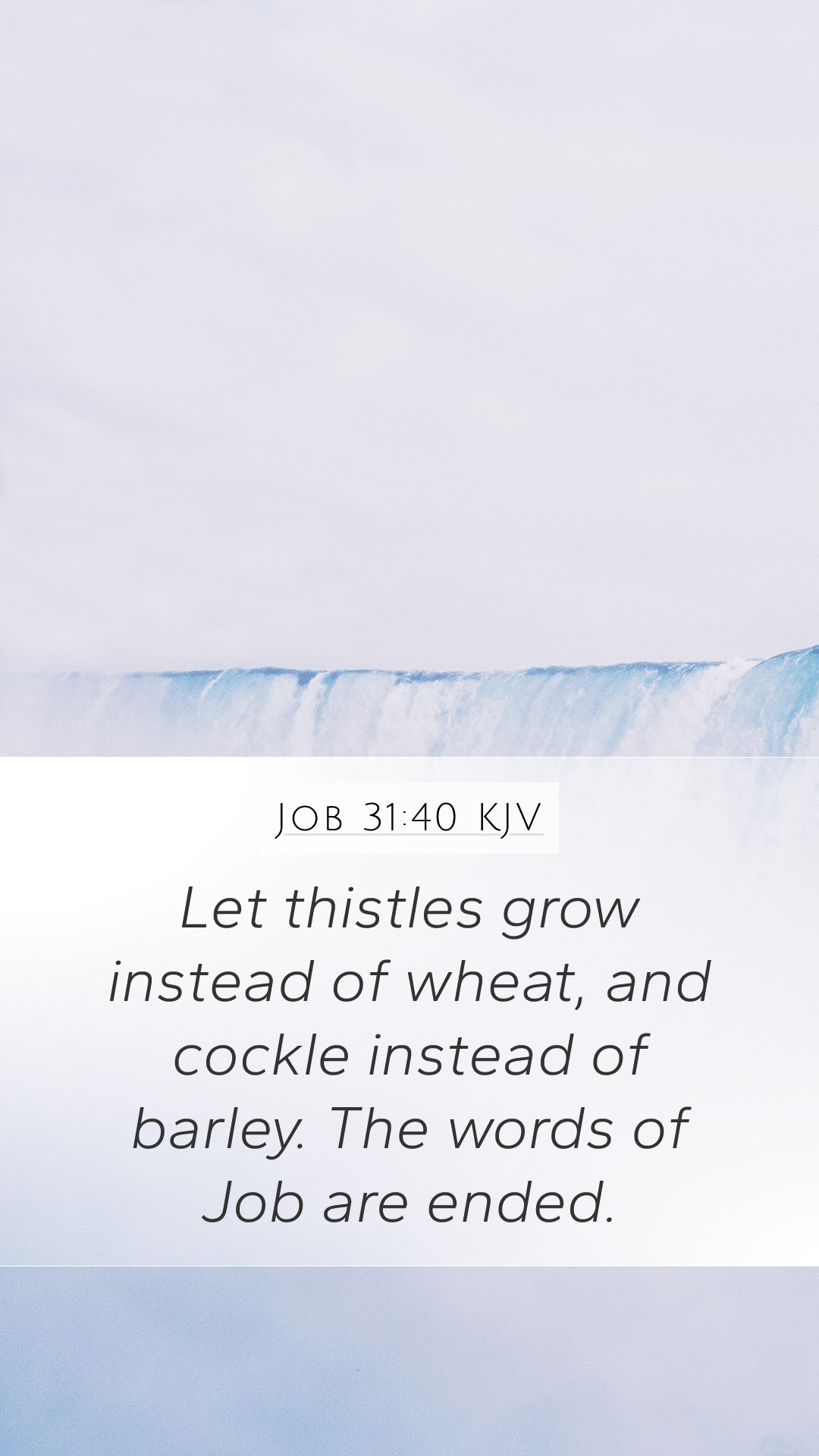Bible Verse Meaning of Job 31:40
Job 31:40 states, "Let thorns grow instead of wheat, and stinkweed instead of barley." This verse concludes a lengthy defense by Job, wherein he contemplates the recompense for his actions, appealing to the justice of God in the face of suffering.
Summary of Interpretations
In analyzing the meaning of Job 31:40, we can draw insights from public domain commentaries, emphasizing several key themes:
- Job's Innocence: Job firmly defends his integrity and righteousness throughout this chapter, asserting that if he has sinned, he is ready for punishment but believes he has done no wrong.
- Imagery of Thorns and Weeds: The imagery used by Job signifies despair and ruin. He suggests that he would prefer a ground filled with thorns (signifying suffering and loss) rather than the fruitful blessings of God's favor, indicating his feelings of hopelessness.
- Divine Retribution: Job calls upon God to judge him and render justice. If he is found guilty, he invites suffering as a consequence, showcasing his willingness to accept divine verdicts.
Insights from Commentaries
Matthew Henry's Commentary
Matthew Henry elaborates that in this verse, Job invokes the imagery of thorns and stinkweed to express his anguish. His use of such stark imagery symbolizes a life marked by sin, lamenting that a life without God's blessing yields bitterness and despair. Henry highlights how Job's desperate plea reflects his desire for divine scrutiny of his life and choices.
Albert Barnes' Notes
Albert Barnes emphasizes Job's appeal for a divine reckoning, where he challenges God to bring forward evidence of his guilt. Barnes elucidates that Job wishes to see the consequences of his sin, if any exist, and the phrase "let thorns grow instead of wheat" underscores his rejection of a life devoid of divine approval and moral integrity.
Adam Clarke's Commentary
Adam Clarke interprets this verse as an expression of sorrow and a rhetorical device meant to draw stark contrasts between blessings represented by wheat and the sorrows of sinful living symbolized by thorns. Clarke notes that Job, having lost everything, reflects on what his life has become and longs for a return to righteousness.
Application in Daily Life
The implications of Job 31:40 extend beyond Job’s immediate historical context. For individuals seeking Bible verse meanings and Bible verse interpretations, this verse serves as a call to self-examination. One may reflect on the hardships in their life and consider if they arise from personal choices or external circumstances.
Understanding Scripture
Furthermore, by engaging in Bible study insights and deepening one’s Bible study resources, individuals can relate Job's plea to their own struggles, seeking God's guidance and clarity in their circumstances.
Cross References
- James 3:18: The connection between righteousness and the fruits of peace, linking Job's moral integrity with divine blessings.
- Galatians 6:7: A reminder that God’s law of sowing and reaping applies to all, emphasizing the repercussions of our actions.
- Psalms 1:4-6: The contrast between the righteous and the wicked, illustrating the outcomes based on one's life choices.
Concluding Thoughts
In conclusion, Job 31:40 encapsulates significant themes relevant to Bible study groups and personal introspection. By understanding this verse, one can appreciate the depth of human suffering while recognizing the call to ethical living and faith in God’s justice and mercy.


